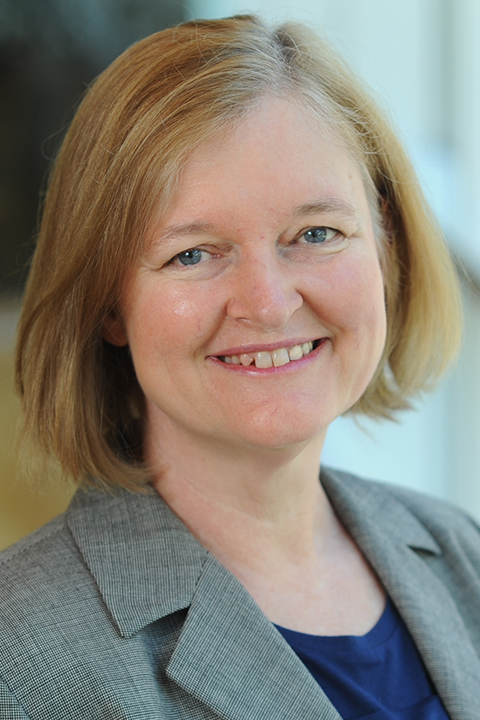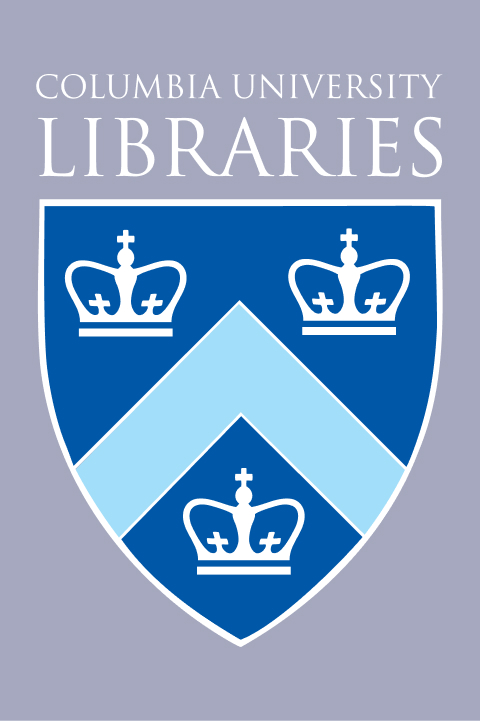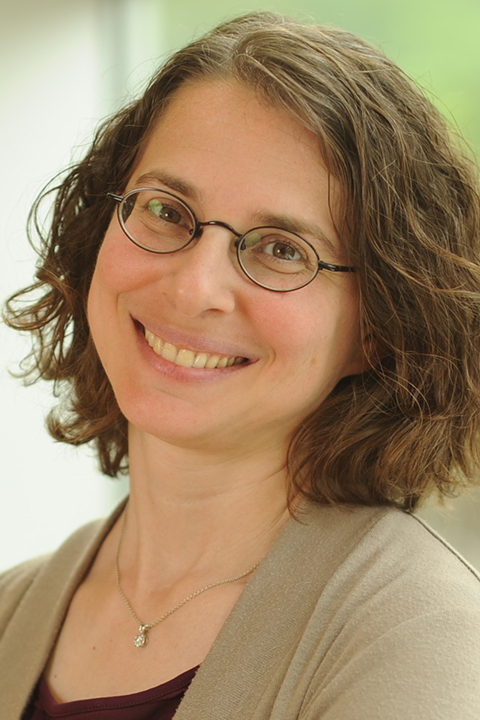Women's Studies
Columbia University Libraries’ collections in women, gender, and sexuality studies support the research and instructional activities of the Institute for Research on Women, Gender, and Sexuality, and all other University department or concentration where gender or sexuality is a component of the coursework or research.
The Institute for Research on Women, Gender, and Sexuality (IRWGS), founded in 1987, is the locus for interdisciplinary feminist and queer scholarship and teaching at Columbia University. In 1988, the Libraries created a women’s studies fund to support the new major and courses and in 2005, an additional gender studies fund was created to support acquisitions in LGBTQ, queer, and sexuality studies. In 2017, the Provost’s Faculty Diversity Initiative brought four new professors specializing in the history of sexuality, queer studies, sociology, and lesbian and bisexual women’s health. The Libraries has added digital collections, new journal subscriptions, and more in-depth book purchases to support these new faculty and courses.
Many of our collections pre-date the creation of IRWGS, and are rich in resources to support research in women, gender, and sexuality. We collect in all areas, languages, and time periods, though our collections are especially strong in US material published from 1800 to present. We have strong book, periodical, newspaper, microform, and digital collections. Our special collections are especially strong in material relating to New York City, and include charities and philanthropy, social reform movements, and publishing and journalism.
This document outlines the Libraries’ general policy on collections on women, gender, and sexuality, but it is not intended to be a rigid set of rules; collection suggestions from students and faculty are welcome. (See contact information below.)
a. Undergraduate
Undergraduate majors and students with a concentration in women, gender, and sexuality studies; undergraduate majors and students in history, sociology, anthropology, literature, economics, political science, and any other department or concentration where gender or sexuality is a component of the coursework or research.
b. Graduate and Professional Schools
Graduate School of Arts and Sciences (GSAS) students who are completing the IRWGS graduate certificate in feminist scholarship; MA and PhD students researching any aspect of women’s, gender, or sexuality studies, especially those in history, sociology, anthropology, literature, social work, human rights, and public health.
c. Institutes, Interdisciplinary Programs, etc.
Institute for Research on Women, Gender, and Sexuality (IRWGS), Center for the Study of Social Difference, Center for Gender & Sexuality Law, Barnard Women’s Center, Mailman School of Public Health, Center for American Studies, Center for the Study of Ethnicity and Race, Heyman Center for the Humanities, Institute for Religion, Culture and Public Life, Institute for the Study of Human Rights, Institute for Research in African-American Studies, and the University Seminar on Women and Society.
d. Course Reserves
Selection for course reserves is up to individual faculty members. The Librarian will do whatever is possible to secure specific materials absent from the collection.
a. Print
Columbia University Libraries actively acquires print material in all subjects related to the study of women, gender, and sexuality. Monographs and periodicals published in the Americas, Europe, Africa, and South and Central Asia are acquired by librarians in other subjects. Imprints related to Japan, Korea, China, and Tibet are acquired by librarians in the C.V. Starr East Asian Library. Material related specifically to fine arts or the built environment is acquired by librarians at Avery Architectural & Fine Arts Library. Titles related to law, health sciences, and education are acquired by the Law Library, Health Sciences Library, and Teachers College Library.
The Librarian collects widely in historical, interdisciplinary, and literary works supporting research in women, gender, and sexuality. Relevant works that fall more specifically into distinct disciplinary areas are collected by a range of librarians. For example, relevant works on music are collected by the Music Librarian and works in Latin American and Iberian studies are collected by the Latin American and Iberian Studies Librarian. The bulk of materials relating to women, gender, and sexuality are acquired for Butler Library.
b. Digital Collections
Digital collections of books and periodicals include the Gerritsen Collection: Women's History Online, which is especially strong in early feminist, suffrage, and international peace movements, 1860--1930; the Women’s Magazine Archive, which provides full text access to popular women’s magazines; and Independent Voices, with a rich array of feminist and LGBTQ publications. Digital archival collections include the Archives of Sexuality & Gender, a growing database of fifty digitized archival collections, among them the Lesbian Herstory Archive, the Gay Alliance Archives, and Act Up records; the Women's Studies Archive, which includes the Committee of Fifteen records (1900--1901), records of international labor and peace movements, second wave feminism, and Planned Parenthood records; and LGBT Thought and Culture, which includes collections from the Kinsey Institute, the ONE National Gay and Lesbian Archives, and The National Archives at Kew. Research databases for primary and secondary sources include LGBT Life, Gender Studies Database, and GenderWatch. Numeric data for statistical analysis is acquired by the Digital Social Sciences Center.
c. Media
More than 7,000 documentaries, feature films, and television programs relating to women, gender, and sexuality are available on DVD and VHS tapes in Columbia University Libraries, primarily in the Butler Media Collection. Streaming access to another 465 videos is available through LGBT Studies in Video. The Librarian for Butler Media, Film Studies & Performing Arts is primarily responsible for collecting media in these areas, though titles are acquired by librarians in all disciplines. Sound recordings and scores are located in the Music Library.
d. Languages Collected
All languages are collected.
e. Chronological Focus
All chronological periods are collected.
f. Geographical Focus
All geographic areas are collected.
g. Imprint Dates Collected
The main focus of collecting is current and recent (+/- five years) imprints. When antiquarian acquisitions are offered via gift or purchase, no specific chronological ranges are established in advance; rare or unique materials from any period may be considered. When antiquarian acquisitions are offered via gift or purchase, no specific chronological ranges are established in advance; rare or unique materials from any period may be considered.
Distinctive & special collections are defined as collections and materials that are very rarely held or are unique to Columbia University Libraries.
Nearly all of our special collections on women, gender, and sexuality have a connection to New York City. Political collections include the records of the Woman Suffrage Association of New York and the Woman Suffrage Party of New York City, the records of the League of Women Voters of New York State, and the papers of Bella Abzug. Social justice and reform collections include an extensive collection of settlement house and juvenile asylum records and the papers of Lillian Wald, Frances Perkins, Constance Baker Motley, Justine Polier, and Yuri Kochiyama. Literature and performing arts collections include the papers of Florine Stettheimer, John Latouche, Tennessee Williams, Allen Ginsberg, Erica Jong, and Manuel Ramos Otero. The Alexander Gumby Collection scrapbooks document African American experience and the history of Harlem. The Ben Duncan and Dick Chapman letters illuminate the experiences of a gay couple in the 1950s. Other collections include papers of sexologists Havelock Ellis, Albert Ellis, and Ethel Person and the papers of cartoonist Howard Cruse. All of the above are found in the Rare Book & Manuscript Library (RBML).
Oral history collections include interviews with Frances Perkins who served as US Secretary of Labor from 1933--1945, Harry Hay, who played a key role in founding the Mattachine Society, Bruce Voeller, president of the New York City Gay Activist Alliance, and several projects documenting the birth control and reproductive choice movements.
The Columbia University Archives documents the 1966 founding and university recognition of the Student Homophile League, the first LGBT student organization in the United States, and its evolution from Gay People at Columbia, the Columbia Gay and Lesbian Alliance, the Lesbian Bisexual Gay Coalition, to Columbia Queer Alliance. A research guide outlines all of the LGBT resources available in the University Archives. Additionally, the University Archives collections document the history of co-education at Columbia.
Please see RBML’s “What We Collect” page for further detail on collection strengths and scope.
a. Consortia and Collaborative Collecting with Other Institutions
The range of print materials focusing on women, gender, and sexuality is greatly enhanced by Columbia’s participation in Borrow Direct, OCLC’s SHARES network of international academic libraries, and the Manhattan Research Library Initiative (MaRLI), a partnership with New York University and The New York Public Library. MaRLI also enables Columbia to expand its electronic access to e-journals and e-books through cooperative subscription and purchase agreements with major vendors. Hundreds of LGBTQ and feminist periodicals in the Libraries’ shared off-site storage facility (ReCAP) and thousands of monographs are now easily discovered and requested through CLIO, the Libraries’ online catalog.
b. Location Decisions and Selection for ReCAP
Deduplication only takes place when a title has been identified for relocation to ReCAP and a copy already exists on shelf at that facility. Even in this instance, the Librarian will inspect the local copy for any unique features or unusual provenance before assenting to deduplication.
c. Deaccessioning
Titles are deaccessioned only in cases where the physical copy is disintegrating and no longer serviceable in print format. In these instances, either a preservation photocopy is made, or a digital surrogate created or obtained. Books located in the Rare Book & Manuscript Library are not deaccessioned.
d. Digitization and Preservation
The Libraries’ Preservation and Digital Conversion Division (PDCD) regularly evaluates materials in the collections for preservation and digitization. Materials digitized by PDCD are accessible through CLIO and are also made accessible through Google Books or the Internet Archive.
A number of significant digital projects have originated from the Rare Book & Manuscript Library (RBML). The Community Service Society Photographs is an online presentation of almost 1,400 photographs (and a few illustrations) from the Community Service Society Records at RBML. They offer representations of urban poverty, unsafe tenement housing, inadequate hygiene in public areas, and other pressing social issues in late 19th- and early 20th-century New York. The images range from the 1880s through the 1950s and may be searched by race or ethnicity of subjects portrayed. Other digitization projects include Ling Long, a women’s magazine published in Shanghai from 1931--1937 and the Women Film Pioneers Project.

Sarah Witte
Research Collections & Services Librarian: Women & Gender Studies
- Humanities & History

Thai S. Jones
Lehman Curator for American History; Lecturer in History
- Rare Book & Manuscript Library

Kimberly Springer
Curator of Oral History
- Columbia Center for Oral History Archives

Jocelyn K. Wilk
University Archivist
- Rare Book & Manuscript Library
Last updated: March 2019